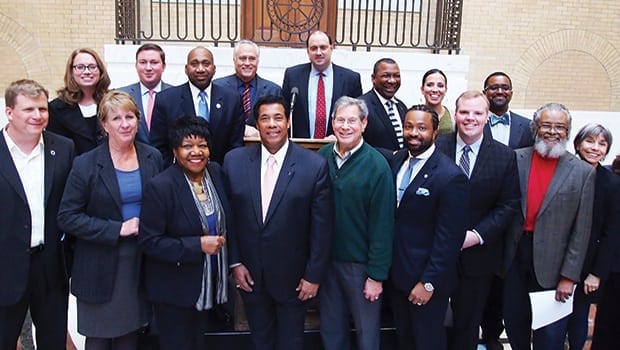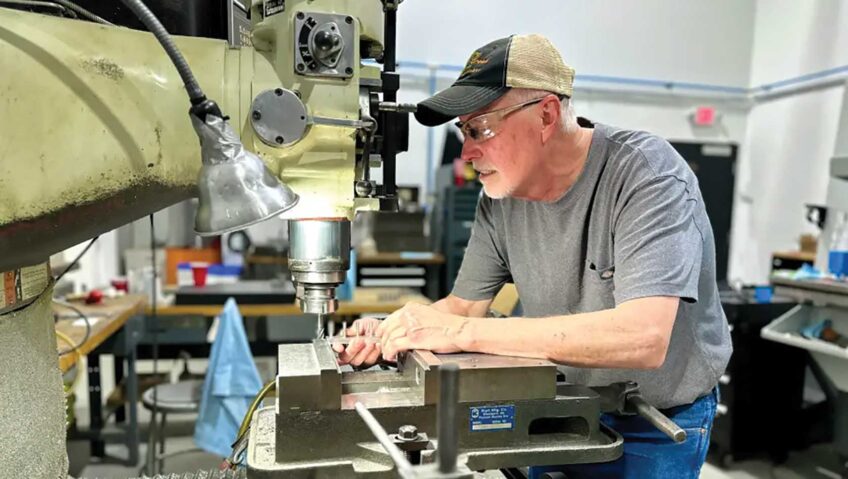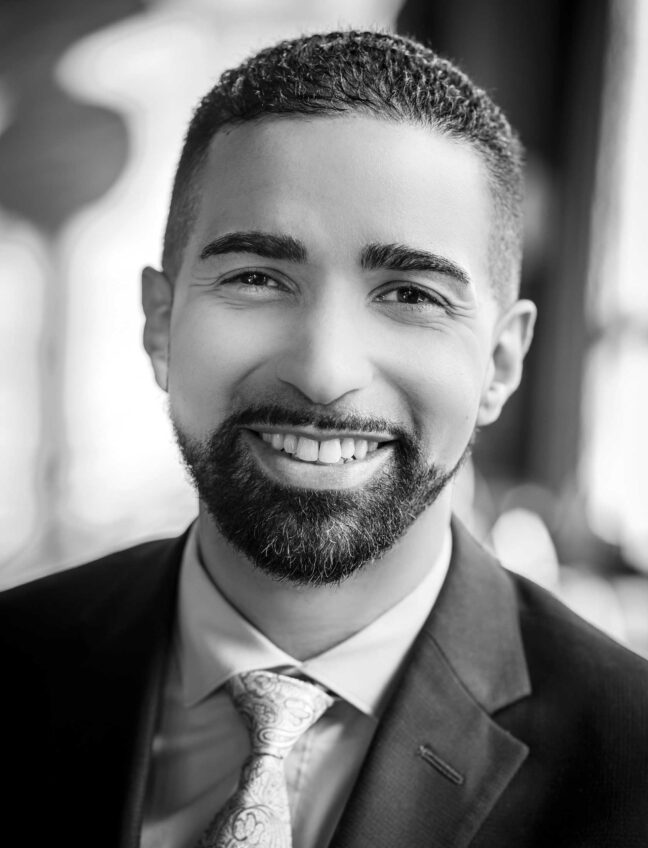Legislators join forces on criminal justice reforms
Five caucuses working on broad spectrum of bills

As legislators and their aides filed into the Great Hall in the State House Monday, criminal justice reform advocates stood behind tables with information packets about their respective legislative initiatives — ending mandatory driver’s license suspensions, ending solitary confinement, eliminating mandatory minimum sentences.
In an unprecedented collaboration, members of the Black and Latino Caucus, the Women’s Caucus, the Harm Reduction and Drug Law Reform Caucus and the House and Senate Progressive caucuses came together to share information and build support for a coordinated push to change everything from pedestrian stops to the state’s bail system.
With the Black Lives Matter movement raising awareness of police abuse at the national level and a deadly opiate crisis in cities, suburbs and towns, longstanding efforts to update the state’s criminal justice system seem well-positioned to move forward.
“It’s almost like the perfect storm where there’s a level of public conversation around these issues,” said Rahsaan Hall, director of the Racial Justice Program for the ACLU of Massachusetts.
And if the human costs of mass incarceration are not enough to sway policy makers, the growing costs of keeping people locked up — $50,000 a year in Massachusetts — has transformed incarceration into the third-largest item in the state budget, behind health care and education.
“Costs are a significant motivator for a broad array of elected officials,” Hall said. “But this is also a great opportunity to address some of the racial disparities that exist in the criminal justice system.”
While blacks and Latinos make up less than 20 percent of the state’s population, they make up nearly 50 percent of the state’s prison population. Blacks and Latinos are more likely to be stopped by police, more likely to be charged with a crime and more likely to be incarcerated than whites. Legislators, black, Latino and white, have been working for years on eliminating mandatory minimum sentencing, notes Rep. Jay Kaufman, chairman of the Joint Committee on Revenue and a member of the Progressive Caucus.
“It’s been incredibly frustrating that we haven’t been able to move on that,” he said. “Now even conservatives are saying we can’t afford the jail sentences people have been getting. I’m happy the political forces are aligning with the forces of justice. It’s no longer a left-wing idea that mandatory minimums don’t work. That’s encouraging.”
Undeniably, part of the equation here and across the country is the rise in opiate-related deaths — a trend that in Massachusetts is mainly affecting whites. As the public face of addiction has whitened, policymakers’ view of drugs has evolved from a criminal problem to a public health problem.
“The cynic in me says now that it’s white middle class kids who are victims of addiction…,” Kaufman said, his voice trailing off.
The ubiquity of the opiate crisis, which has struck people from the Berkshires to Winthrop, where House Speaker Robert DeLeo lives, has meant that nearly every legislator in the House and Senate has a growing death toll in his or her district.
The crisis is forcing people from diverse backgrounds to work on a wide range of issues.
“We have mothers in Milford who are sitting around kitchen tables with mothers from Roxbury talking about sentencing alternatives,” said Andrea James, founder of Families for Justice as Healing. James is advocating on behalf of a bill that would bar non-violent offenders who are primary caretakers of young children from serving prison sentences. James says that 85 percent of women currently incarcerated in Massachusetts are primary caretakers for children and that there are currently 14,000 children in Massachusetts who have a parent in who is incarcerated.
- Other reform initiatives legislators are promoting include bills that would:
- Allow judges to release prisoners who are medically incapacitated or terminally ill.
- Require police departments to report data on race and traffic stops and pedestrian stops.
- Reduce low-level felonies like shoplifting or petty theft to misdemeanors with lower penalties.
- Reform or end pre-trial bail.
- Expunge CORI records for juveniles.
- Appoint special prosecutors to investigate police shootings.
The measure ending automatic driver’s license suspensions has already passed in the Senate, and, with support from district attorneys and other law enforcement officials, is expected to pass in the House.
While the focus Monday was on the legislation members of the various caucuses are backing, many legislators commented on the unprecedented degree of collaboration between caucuses that often work on similar issues but have never coordinated their efforts to the degree they are now.
“If you add up all members of all the caucuses here today, it does make up a majority of the Legislature,” said Sen. Jamie Eldridge.
Not all the bills are assured passage, however. While many of the bills would have race-neutral outcomes, some that address race issues head-on are facing pushback. Sen. Sonia Chang-Diaz says police chiefs are opposed to her bill, which would require them to report data on race and police stops. Chang-Diaz says the measure would help ensure that policing is done in a way that doesn’t discriminate against people of color.
“You can’t manage what you don’t measure,” she said. “If we’re serious that we are committed to bias-free policing, we need a way to measure that.”
Rushing said the fate of the data collection bill, which he filed a version of in the House, could be telling for the coalition of caucuses.
“The test is how supportive each caucus will be toward the others,” he said.







